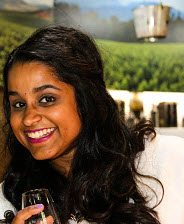
1. What makes you keep coming to do more sessions?
It’s simple. I truly enjoy doing the sessions. Not only do I get to meet people from various countries and backgrounds, I am also providing information and giving them a safe environment to ask questions to learn more about their general health and also about Australia. The excitement that I get when I sign up for a session is just as exciting as when I signed up for my first session 2 years ago. To be able to spend my time helping migrant families through their transition of integrating into Australian society and at the same time providing education on certain important health issues has been a very rewarding experience each and every time.
2. Why do you think the work of The Water Well Project is important?
Knowledge breaks down fears and boundaries. It provides the confidence that one needs to make that first step. During many of these sessions, there have been numerous questions from the participants that started with the phrases “I am afraid to…” , “ I am not sure …” or “ Is it normal to …” . However, the moment you guide them through their questions and either provide relevant information or direct them towards the appropriate services, they heave a sigh of relief and a smile appears. It is as simple as that.
Put yourself in their shoes: Foreign land. Foreign Cultures. Foreign language. Now go and restart your life from scratch.
Truly a daunting experience.
All that the volunteers of The Water Well Project are doing is being one of the hands that reach out to guide them through this experience.
3. Do you think volunteering with The Water Well Project helps your daily work? How?
It definitely does. I am a resident at Western Health and the patient demographics that Western Health serves is one of the most diverse in Victoria. However, since I have had the opportunity to interact and learn about the various cultural groups in Victoria through The Water Well Project, I have been able to use this knowledge and skills directly at work and provide better care for my patients. Furthermore, through these sessions, I have come to learn about the various obstacles and issues that refugees and asylum seekers of Victoria face and this helps me address not only their medical problems when they come to the hospital, but also ensure that they are well supported when they are discharged back to the community and are truly informed about managing their medical (and non-medical) problems. I have further been able to share this experience with my fellow colleagues; breaking the habit of creating stereotypes through education.
4. What have you learnt from volunteering with The Water Well Project?
I have learnt about how far one would go to save the lives of their children and family and this in turn has taught me how resilient the human mind and body can be. When the session is over, sometimes I stay back to have a chat with some of the participants and this just brings upon such amazing stories of how their life was back in their country and what they have gone through to escape the turmoil there and lead a safe life in Australia. Truly puts many things in perspectives.
Hence, if after the one hour session, they are able to walk away from it with solutions or even clarity to some queries, then it is one way that we as volunteers have helped lift some of the burden that these participants face.
5. What are your tips for volunteers who "feel" that their session isn't going as expected?
Don’t worry. It happens.
All you have to do is take a step back, and reassess the situation. No one is timing you. No one is scoring you on your session. No one is scrutinising it for errors. Hence, just take a deep breath, and resume the session.
What is working? What is not working? Any factors that you can modify to improve the experience?
For example, if it is because of a non-engaging audience, split the group up into small groups or pairs and give them tasks to work on and discuss these tasks as a whole. Try short ice-breaker games or even a quick music and dance session where they stand and copy your hand and leg movements to create some laughter and lighten the atmosphere.
If the group ends up in a tangent discussion, make yourself be heard and address that the points they have raised are relevant however, you and your partner have to continue with the session so that they would have time in the end for miscellaneous questions.
If the group starts creeping into a “let’s complain about everyone and everything” conversation, slowly steer them away from that discussion by emphasising that it is important for everyone to stay in topic so that they can get some useful information from the session.
The key point to remember is not panic and let them know why this session is important to them and how they can use the information in the session in their daily life.
Don’t forget to smile and have a little fun. Humour goes a long way. =)
